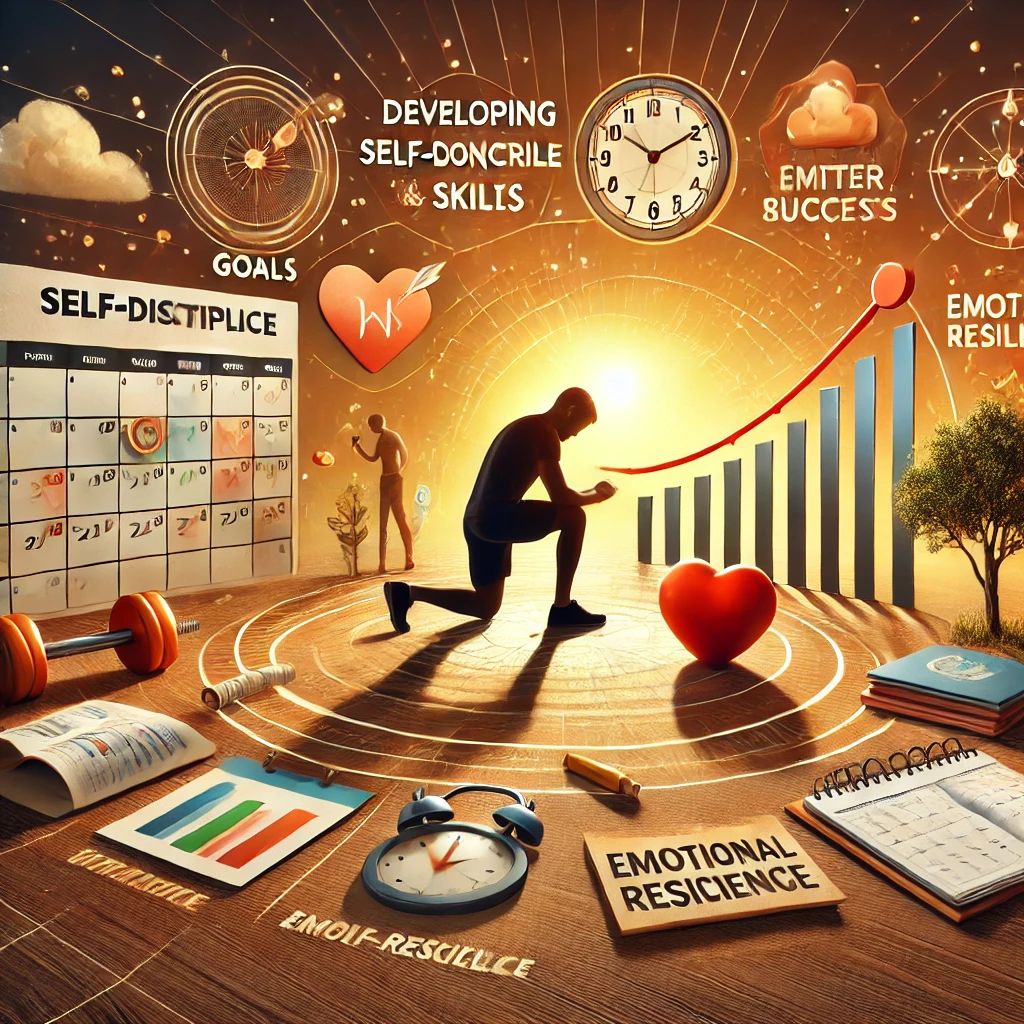
The Role of Self-Control in Personal Growth
Self-control is the ability to regulate your emotions, thoughts, and actions in pursuit of long-term goals. It is essential for overcoming short-term temptations and staying focused on what truly matters. Developing self-control allows you to maintain focus and make decisions that align with your values and objectives, helping you achieve personal and professional growth.
Discipline Leads to Long-Term Success
While self-control helps in the moment, discipline is about building habits that lead to consistent, long-term success. Discipline is what drives you to continue making the right choices, even when motivation is low. It’s the foundation for:
Achieving personal goals: Whether it’s weight loss, learning a new skill, or financial savings, discipline helps you stay on track.Building strong relationships: Discipline encourages consistent effort in maintaining meaningful connections and resolving conflicts constructively.Improving work performance: Developing discipline helps you stay organized, meet deadlines, and maintain high productivity at work.Benefits of Developing Self-Control and Discipline
When you strengthen your self-control and discipline skills, the benefits extend into various areas of life, including:
Better health: With greater self-control, you’re more likely to stick to healthy eating habits, exercise regularly, and avoid harmful behaviors.Increased productivity: Discipline helps you set priorities, manage time effectively, and complete tasks, leading to greater efficiency.Emotional resilience: Self-control allows you to manage stress, remain calm in challenging situations, and avoid impulsive reactions.Financial stability: Practicing self-discipline helps you save money, avoid unnecessary spending, and work towards financial security.How to Build Self-Control and Discipline
Building these skills requires consistent effort, but with the right strategies, anyone can develop them:
Set clear goals: Define what you want to achieve and break those goals into smaller, manageable steps. This helps you stay focused and motivated.Create routines: Routines make it easier to maintain discipline. For example, having a set time for work, exercise, and relaxation helps you build healthy habits.Avoid temptations: Identify triggers that weaken your self-control and develop strategies to avoid or minimize them. This could mean keeping distractions out of your workspace or planning healthy meals in advance.Practice delayed gratification: Train yourself to delay short-term rewards in favor of long-term success. For example, waiting a few weeks before making a non-essential purchase can help you avoid impulse buying.Self-Control and Discipline in Emotional Well-Being
Beyond achieving external goals, self-control and discipline are essential for emotional well-being. By managing impulses and emotions, you can maintain a calm and balanced mental state. This helps you:
Manage stress: Instead of reacting impulsively to stressful situations, self-control helps you pause and choose a more thoughtful response.Avoid burnout: Discipline enables you to pace yourself, set boundaries, and prioritize self-care, which prevents emotional and physical exhaustion.Build better habits: Consistent self-discipline leads to healthy habits that support mental and emotional health, such as regular meditation, journaling, or mindfulness practices.Conclusion: The Power of Self-Control and Discipline
Developing self-control and discipline is key to leading a successful and fulfilling life. These skills empower you to make thoughtful decisions, stay focused on your goals, and maintain emotional well-being. By cultivating discipline and self-control, you can achieve long-term success, build resilience, and enhance your overall quality of life.
The article was prepared by Lisa Cooper.



